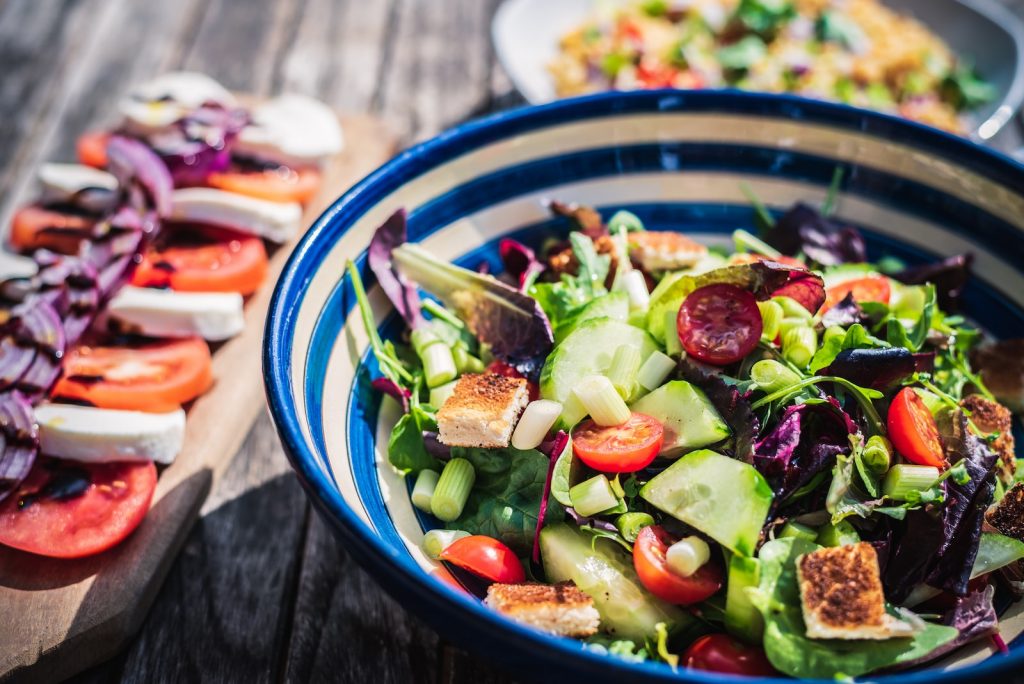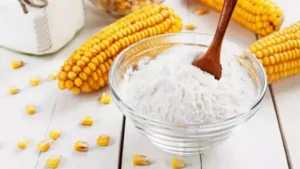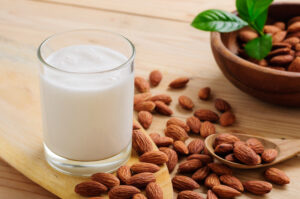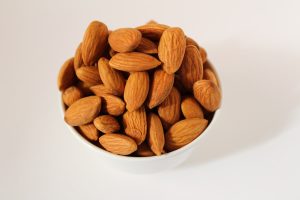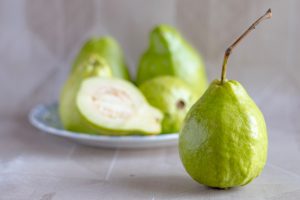If you’re looking for ways to improve your diet, I have some good news: It’s actually not that hard! Here are 10 simple changes that will help you eat healthier and lose weight.
Eat Slowly
The best way to eat slowly is to take the time to enjoy your food. Eating slowly allows you to savor the flavors of each bite, which can help you eat less and feel full longer.
It’s also important not to rush through meals in an attempt to get them over with as quickly as possible. Rushing will cause you to overeat or even eat when hungry instead of when full because there wasn’t enough time for your stomach to signal that it was ready for another helping (and if there wasn’t a signal from your stomach yet, then how could anyone else tell?).
Finally, eating slowly helps digestion by allowing enzymes in our bodies—the same ones responsible for breaking down proteins—to work more efficiently so food gets digested more effectively.
Eat Plenty Of Protein
Protein is essential for building muscle, which helps you burn fat and stay energized throughout the day. Protein also provides a quick source of energy when you’re feeling hungry. It helps your body digest food, so it can absorb more nutrients from each meal.
Protein also helps build strong nails, strong bones and healthy hair, skin and nails.
A good way to get more protein into your diet is by eating more eggs or beef tenderloin steak with vegetables such as broccoli or green beans. You can also add some cheese onto any sandwich or wrap; this will give it extra flavor without adding too much fat!
Eat More Vegetables And Fruits
Fruits and vegetables are high in fiber, vitamins, minerals and other beneficial compounds that help your body stay healthy. For example:
- Fruits contain antioxidants that help fight free radicals in the blood stream. Free radicals can damage cells causing chronic illnesses such as heart disease or cancer. Antioxidants also work as signaling molecules to tell your cells when they’re damaged so they can repair themselves before they become cancerous (2).
- Vegetables contain folic acid which helps prevent birth defects by helping prevent neural tube defects like spina bifida (3). Vegetables are also an excellent source of potassium which plays a role in lowering blood pressure (4).
Drink Water, Especially Before Meals
Water is essential for your health, but it’s also one of the most overlooked nutrients. Luckily, there are several simple ways to increase your intake and feel better:
- Drink water before meals. Drinking a glass of H2O before you eat will help fill you up, which means less food on your plate. That means fewer calories later in the day!
- Drink water during meals. A study done at Washington State University found that people who drank an extra glass of water during their meal consumed less than those who didn’t have any more liquid between bites (and therefore ate more). This makes sense because when we’re hungry or thirsty, our brains send signals saying “eat” while simultaneously sending signals saying “drink.” So if we want to eat less at dinner time but don’t want to miss out on all those delicious flavors from our favorite dishes—or maybe just don’t feel like having another cupcake—a little extra hydration can go a long way!
Take Care With Carbohydrates
Carbs are important, but you don’t have to overdo them. Carbohydrates are your body’s main source of energy and they’re good for you!
- Don’t go crazy with carb consumption. The Institute of Medicine recommends that adults get 45% of their daily calories from carbohydrates, meaning at least 20g per day for women and 35g per day for men. For many people who work out regularly (or just aren’t as active), this can be hard because we need more carbs than most people do on a regular basis—as much as 130 grams per day! But remember: moderation is key here; if you’re going to eat carbs, make sure not to eat too much or else you’ll end up feeling sluggish and tired all the time (and possibly gain weight).
- Choose foods with complex carbs such as fruits and vegetables over simple ones like white breads/pastas/rice cakes/etc., which may contain more simple sugars than whole grain products do.*
Eat Fiber-rich Foods
Fiber is a type of carbohydrate that your body cannot digest, and it passes through your digestive tract unprocessed. This means that fiber can help slow down the rate at which food moves through your body, which in turn helps you feel fuller for longer and reduces cravings for high-calorie foods.
It also helps keep cholesterol levels low and improves blood sugar control. Fiber also has been shown to reduce the risk for colon cancer by about 50%, according to one study. The American Cancer Society says that eating at least five servings of whole grains each day may reduce your risk for colorectal adenoma or polyps (a precancerous growth), as well as help prevent some cancers from forming altogether—including those related to diabetes type 2 such as pancreatic cancer; esophageal squamous cell carcinoma; gastric cardia adenocarcinoma (a rare form); gastric non-cardia intestinal metaplasia adenocarcinoma; nasopharyngeal adenocarcinomas).
Snack Smartly
- Eat whole foods.
- Eat fruits and vegetables, not just the fruit but also the vegetables.
- Limit your sugar intake to no more than 10% of your daily caloric intake (or 20g if you’re on a low-carb diet). If you want to lose weight, try cutting out added sugar completely and see how that feels in terms of cravings and moods—you may find yourself craving sweets because they are so much easier for you to get! Try adding some non-dairy milk or unsweetened plant-based yogurt instead of sugary drinks when eating out at restaurants where there isn’t an option for water with every meal (which is usually how most people end up drinking too much liquid anyway).
Limit Your Intake Of Added Sugars
Sugar is a simple carbohydrate that can be found in many foods, including:
- Drinks like soda and fruit juice
- Desserts, candy and other sweetened foods
- Grains like white bread or pasta
Don’t eat too much sugar, eat more protein than carbs, and watch your portions!
- Sugar is a major contributor to weight gain and health problems.
- Protein is important for muscle growth, but it can also be converted into sugar if you’re not careful.
- Portion control is important when it comes to eating healthy foods or snacks that have high amounts of carbs, such as potatoes or pasta.
Conclusion
Remember, the key to eating well and getting the results you want is simple: eat smart. Don’t go hungry, don’t overindulge in certain foods, and don’t skip meals. If you do these things, your body will start to change for the better—and it could lead to a healthier lifestyle that lasts for years!



